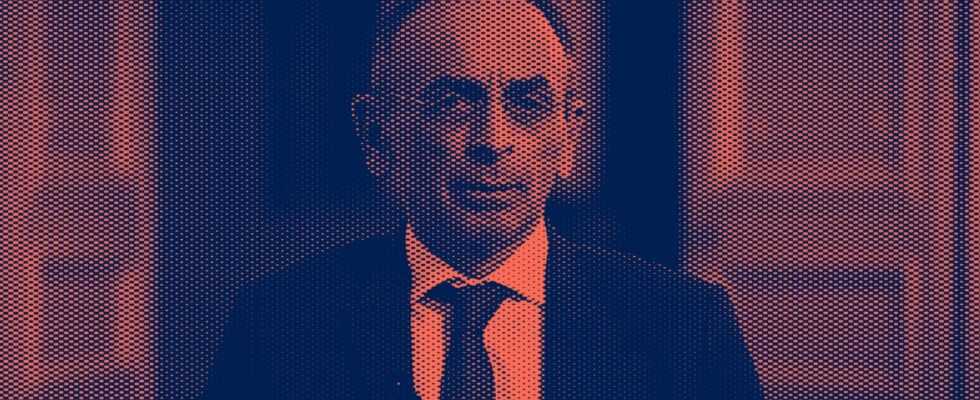Eric Zemmour’s program is now known. He defends the learning of programming at school. However, a month earlier, he was against it.
Absent from his program until now, digital technology has just entered Éric Zemmour’s campaign. The candidate ranked on the far right of the political spectrum presented on February 14 his orientations on this subject if he acceded to responsibilities. A dedicated page is now on its site for the 2022 presidential election.
Which digital program for Zemmour?
Éric Zemmour’s digital policy focuses — unsurprisingly — on issues of sovereignty: he defends the emergence of French champions in key sectors (such as artificial intelligence, quantum computing, the cloud, chips and cybersecurity). He pleads for a location in France of sensitive data, on French infrastructures.
But the program also includes unexpected announcements, such as support for the blockchain (a technology that stores information, and which allows the operation of cryptocurrencies) and Web3 (a nickname given to an evolution of the web that is still not very concrete, mixing precisely blockchain and decentralization), but also a plan for programming at school.
More precisely, candidate Zemmour declares that he wants ” give pride of place to the teaching of computer programming from secondary school, to meet the growing demand for digital jobs “. The secondary, in France, designates the college and the high school, that is to say seven years of study, from the sixth class to the terminal.
The polemicist’s program, since converted into a politician, does not detail how he intends to go about giving a “place of choice” to learning programming in school education: from which class? In which course? To the detriment of what other teaching? For how many hours per week?
A turnaround on learning to code
Still, the appearance of this campaign proposal comes a few weeks after a television sequence that Internet users have not failed to make fun of on social networks. Because a month before, during his appearance on the program Les Quatre Vérités, the candidate dismissed the idea of learning programming at school.
” Do you also want to teach kids Python, PHP, JavaScript? “, had launched the journalist Caroline Roux. Not understanding what it was all about, Éric Zemmour suggested that it was not among his priorities to have students learn ” the new language, the language of digital, the language of coding “, believing that it should rather be reserved for specialized teaching.
” We are not here to learn coding, not in school, between primary and secondary “, he said then. He considered that this knowledge should rather be reserved for higher studies in computer science and technology. A month later, however, Éric Zemmour made a change, at least a correction, by including the code for secondary school.
School programs that already include programming
The question of teaching programming at school level has been raised for a decade in France. It was the subject of a bill in 2013, never adopted, as well as work by the Academy of Sciences and the National Digital Council. In 2015, algorithms and programming started to appear in the curricula.
Currently, according to the programs as posted on the Ministry of National Education, ” computer science education (algorithmics and programming) is provided jointly in mathematics and technology “, in college (fifth, fourth, third) to learn methods and build a “ algorithmic thinking. »
In high school, there is teaching on algorithms and programming in the common teaching of mathematics in second, and in the specialty programs “mathematics” and “digital and computer science”. We also note that the Python language is preferred for this teaching, one of the terms on which Éric Zemmour stumbled.
In the school programs for high school, it is specified that Python was chosen because it has various advantages: it is a language ” easy to use », « interpreted, concise, widespread and able to work in a variety of environments “, but also ” free and free », « rich in adapted libraries and benefiting from a vast community of authors “.
